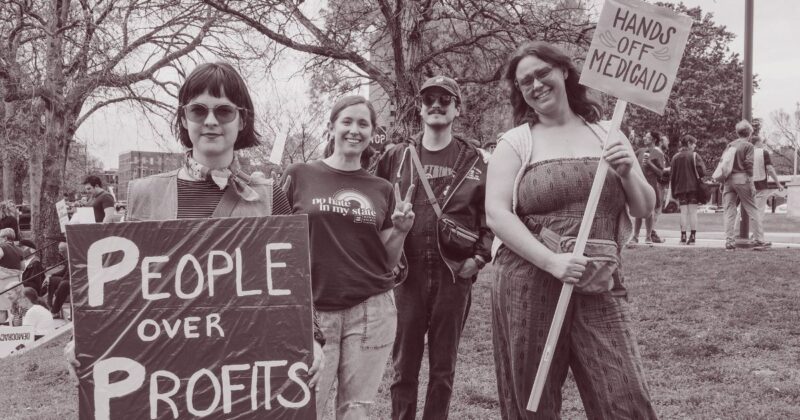Hi! It’s konkaz (@konkazuk).
In this article, I will be introducing ‘What is Populism?‘, a book by Jan-Werner Müller, a German-born political philosopher and scholar of the history of political thought.
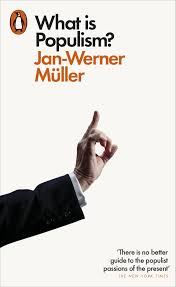
I think the first time I heard the word “populism” was around the time of Brexit.
Back then, right-wing politicians had already been draining wealth from the working class through austerity measures. Then, in order to win elections, they brought up immigration issues to divide the working class, presenting themselves as “on the side of the people” and winning over a portion of them. I saw this kind of strategy — used by figures like Nigel Farage — as a clear example of populism.
However, in 2025, with even the Labour Party having shifted to the right, it feels as though the only party still truly standing on the left for the interests of workers is the Green Party.
So I began supporting them… and then suddenly, Zack Polanski, running for party leader, says, “I’m an Eco-Populist”.
I actually think the policies he’s talking about make perfect sense.
Still, the word “populist” just sounds negative to me.
That’s why I bought this book — to try and make sense of my conflicting thoughts.
The book does feel a bit challenging at times, since it covers a lot of historical politicians and events. But as you keep reading, you really start to understand what “populist” means.
Who is Jan-Werner Müller
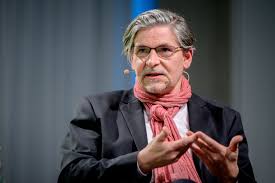
Let’s start with the author.
Jan-Werner Müller is a German-born political theorist and scholar, internationally recognised for his work on modern European political thought, populism, and democratic institutions.
He frequently contributes to major media outlets such as The Guardian and The New York Times.
Among his major works are ‘Contesting Democracy: Political Ideas in Twentieth‑Century Europe‘ and ‘Democracy Rules‘.
In the book we’re looking at today — ‘What Is Populism?‘ — Müller clearly explains how populism manipulates democratic systems and can sometimes lead to destructive outcomes.
What exactly is populism?
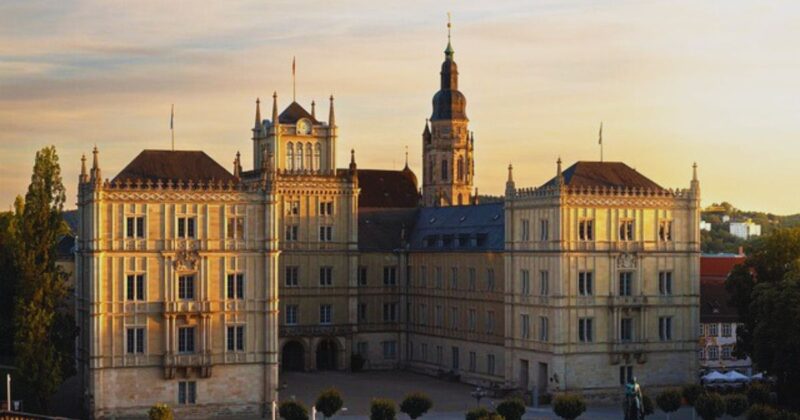
The term “populism” often comes up in the news — but what exactly does it mean?
I’ve tried to figure it out, but it’s confusing.
Some so-called populists sound like a danger to society, yet sometimes those fighting against them get called populists too…
Liberal elites often stir up anti-foreigner sentiment to win over people frustrated by economic inequality — using slogans like ‘kick out the foreigners!’.
But rather than genuinely responding to public demands, they continue to advance liberal technocracy, a system that deliberately sidelines the will of the people.
Populism is often seen both as a threat to the liberal elite-driven politics that have distanced ‘the people’ from democracy, and as a way to correct that very problem.
At the end of the day, in a democracy, leaders are chosen through elections — so naturally, politicians try to win people over by telling stories that most citizens can understand and relate to.
Because of this situation, populism is seen both as a friend and an enemy of democracy. As a result, we’re left struggling with how to define it clearly.
Especially since the idea of populism is understood in totally opposite ways in the US and Europe, I think it’s worth clearing that up here.
▪️In the U.S.
In the U.S., populism often carries a positive image. It’s widely seen as the “voice of ordinary people” standing up to big corporations and entrenched elites — symbolised by grassroots movements. Many regard it as a genuine effort to bring the voices of the marginalised into politics, and as a step towards achieving true democracy.
▪️In Europe
Populism tends to have a pretty negative reputation. It is regarded as a kind of politics that manipulates public anger, ignores complex realities, and wins votes through empty promises — in short, a demagogic style of politics. Because of this, populism is often seen as a threat to democratic integrity.
According to the author, Jan-Werner Müller, the core claim of populism is “moralised anti-pluralism”.
In simpler terms, it’s the belief that there is only one true common good, that the people both understand and desire it, and that politicians or parties can directly implement it as policy.
A politician who does not hold this belief cannot be called a populist.
Populists always say things like, ‘We’re the only ones who truly represent the real people‘, and they tend to push out anyone with different opinions or from minority groups by calling them ‘not real people’.
In such a situation, if the populists’ sense of morality is distorted and the public is politically apathetic or complacent, people may blindly follow their angry rhetoric and end up suffering the consequences.
To put it bluntly, populism rejects the essential democratic values of pluralism and political competition, and may threaten to destroy democracy from the inside.
How do populists govern?

These days, a lot of people around the world seem to be losing trust in democracy.
But it’s not that people have come to dislike democracy itself — rather, they feel that democracy, shaped by neoliberalism and consumer-driven competition, no longer works in their favour.
Populist governments can present themselves as defenders of diversity and minority rights, positioning themselves in opposition to hegemonic liberalism.
They skillfully connect their moral worldview with public discontent, thereby securing majority support in elections.
Once populists gain power, they tend to exclude those with differing opinions or minority groups, as they are fundamentally ‘anti-pluralist‘, as previously mentioned.

So in that sense, populists are often seen as successors to the Jacobins — the radical political group from the French Revolution.
Here’s what can actually happen…
① Strengthen executive power while weakening the judiciary
They often appoint their own people to courts and prosecutors’ offices, effectively neutralising checks and balances.
② Amend the constitution and use it as a tool to replace existing public officials
Under the pretext of “cleansing”, they replace existing public officials.
③ Turn political parties and state institutions into personal property
They label critics as “traitors” or “enemies of the people” and push them out.
④ Elections continue in form but lose substance
With media under control and opponents harassed, voting is no longer truly free or fair.
In other words, populists come to power through democratic means, but afterwards, they use undemocratic methods to dismantle institutions and strengthen their own rule.
Examples of populists
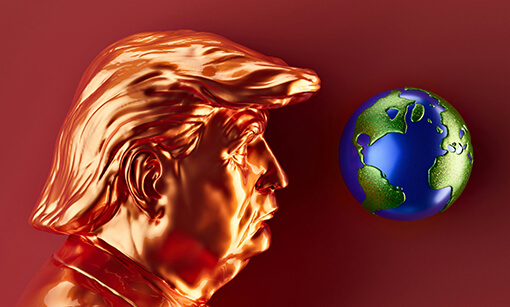
Let’s take a look at some typical examples of populists.
🇺🇸 Donald Trump(The U.S.)
▫️Previously, even when the media or opposition parties criticised the government, they were still seen as essential components of democracy. But when Trump began calling unfavourable media coverage ‘fake news’ and labeling opposing politicians as ‘anti-American’, the shared understanding of what counts as fact started to break down among the public.
▫️Instead of choosing public officials or judges based on ‘competence’ and ‘experience’, they appoint only those who show personal loyalty — and anyone who dares to disagree gets pushed out, no matter how capable they are.
▫️When facing possible election defeat, they repeatedly claim ‘fraud’ or ‘manipulation’ without any evidence, undermining public trust in elections — the very foundation of democracy.
🇭🇺 Viktor Orbán (Hungary)
▫️The media used to be able to criticise the government, but once he came to power, newspapers and TV stations that didn’t align with the government’s views were bought out or shut down. As a result, the public had fewer chances to learn what was really happening, and the flow of information became heavily biased.
▫️Courts used to be able to make decisions without government interference. But the Orbán government appointed a large number of loyal judges, making sure that inconvenient rulings would no longer be issued. As a result, judicial independence was lost, and those in power could bend the rules without being held accountable.
▫️People with different views from the government — especially minorities — started being labeled as ‘traitors’ or ‘foreign agents’, deepening social divisions.
▫️Before, a change in government meant rules and systems could go back to being neutral. But now the constitution and election laws have been rewritten, making it almost impossible for power to actually change hands.
🇵🇱 Jarosław Kaczyński (Poland)
▫️In the past, courts could make decisions without government interference. But when Kaczyński’s PiS party came to power, they stacked the Constitutional Court with their own allies, letting them bend the rules to suit themselves.
▫️Public broadcasters used to be relatively neutral. But since Kaczyński came to power, public TV and radio have mainly echoed the views of PiS, making it harder for opposition voices to reach the public.
▫️Everyone was meant to have the same rights, but then the government started calling LGBTQ+ people and immigrants a danger to Polish values, and suddenly hate became mainstream.
🇹🇷 Recep Tayyip Erdoğan (Turkey)
▫️Turkey used to have a parliamentary democracy with a functioning separation of powers. But Erdoğan expanded presidential powers through a referendum, creating a system where he can make decisions almost single-handedly.
▫️People used to be able to speak out against the government, but now Erdoğan uses the excuse of ‘fighting terrorism’ to lock up or shut down critics. Free speech is basically disappearing.
▫️There used to be some political recognition for ethnic minorities, but Kurdish parties and local leaders have been arrested, and regions or groups that don’t comply with the government are now treated as ‘anti-state forces’.
🇻🇪 Hugo Chávez (Venezuela)
▫️Although a democratic system existed, Chávez amended the constitution and consolidated control over the judiciary, military, and administration with loyalists, effectively personalising the state.
▫️Opposition parties and independent media used to operate freely, but their funding sources and broadcasters were shut down one after another, making it difficult to criticise the government and causing diverse opinions to disappear from the country.
▫️Support for the poor was limited but did exist initially. Chávez promised to expand state-led welfare programs to gain their support. However, because the economy relied heavily on oil, when prices dropped, the country quickly fell into crisis.
🇳🇱 Geert Wilders (Netherlands)
▫️ There used to be at least some respect for multiculturalism, but Wilders kept pushing anti-Islam messages and calling immigrants ‘enemies of the Netherlands’, which stirred up conflict between people.
▫️ Freedom of speech was relatively stable before, but Wilders attacked criticism of himself as “elite bias,” undermining trust in the media and causing people to get swept up in emotional stories.
*Although he hasn’t officially taken power, his influence on society as a populist is significant.
As you can see from these examples, there are some striking similarities among them.
How can we deal with populism?
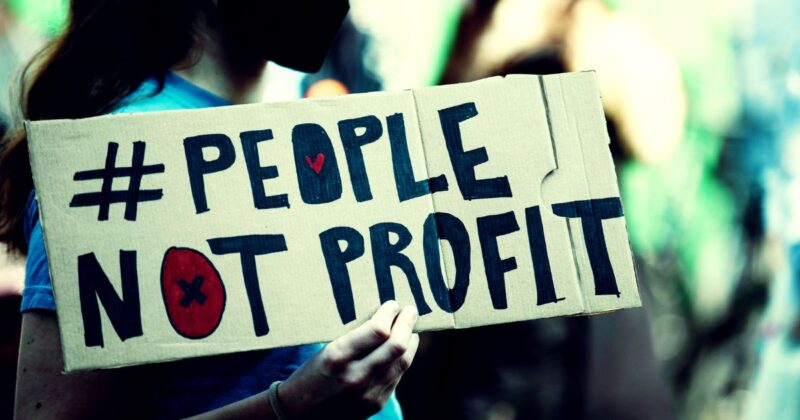
As you get to the second half of the book, the key differences between democracy and populism start to become clear.
Democracy is based on the idea that even though leaders are chosen by majority vote, the policies they implement won’t always reflect the will of the majority.
Populism, on the other hand, claims that any action taken by a populist government must not be questioned, simply because ‘it’s what the people want‘.
So then the real question is: how do we defend democracy?
Here’s a summary based on what the book suggests…
🔹 Clearly distance ourselves and respond from a standpoint that upholds democratic principles
If you ignore populists’ discriminatory or provocative remarks, saying they’re ‘not worth engaging with’, they use this to portray themselves as victims.
When they claim ‘there are too many immigrants’, if other parties concede even a little by saying ‘there’s some truth to that’, it’s seen as proof they were right.
👉 So, ignoring them or giving in even slightly is not a good strategy.
🔹 Drop the assumption that everything can be resolved through conversation
Because populists see only their supporters as ‘the people’, they call opponents ‘traitors’, ‘non-citizens’, ‘elites’, or ‘foreign agents’, excluding them from being considered part of the nation.
Democratic debate requires the assumption that there is some merit in the other side’s views, but populists refuse to accept anyone else as legitimate and ignore opposing voices from the start.
👉 With populists, we need to discard the assumption that “dialogue will lead to mutual understanding” and try a different strategy.
🔹 Protect the systems that uphold democracy
In democracy, even if the majority wins an election, the opinions and rights of minorities are still protected. In contrast, populists claim that ‘we are the entire nation’ and believe that winning the election means they can do whatever they want.
Populists, who are ‘anti-pluralist’, say that opponents are enemies and dissent is not allowed. However, every government should always be subject to criticism, and having different opinions is essential to democracy.
👉 It is important not to respond with anger or emotion, but to consistently respect rules and procedures, thoroughly protecting the system from being destroyed.
🔹 Just criticising won’t solve anything
Citizens who are frustrated don’t just want to hear who’s to blame — they want to know how things can actually get better. So simply criticising populists isn’t enough. Without offering real alternatives, people will naturally gravitate towards the hope that populists seem to offer.
👉 That’s why it’s essential to genuinely listen to people’s fears and anger, and present a more compelling vision than the populists can.
🔹 Reclaim the word ‘the people’ from populists
Populists try to define ‘the people’ as those who support them, but in reality, citizens hold a wide range of views, backgrounds, and life experiences.
If ‘the people’ just means the populists’ base, others will feel scared to speak up.
👉 The goal of democracy is to balance these diverse voices and build a society where we live together. That means treating the voices of minorities, the poor, immigrants, young people, and the elderly all as legitimate parts of ‘the people’ to be reflected in politics.
Zack Polanski’s “Eco-Populism”

So now, let’s go back to what I mentioned earlier about Zak Polanski, deputy leader of the Green Party, and his idea of ‘eco-populism‘. Essentially, it’s a vision that combines environmental policy with populist political strategy.
Climate change now threatens the very survival of humanity. This is not a problem for just a few people, but a crisis confronting all of humankind.
Despite this, some people keep drilling for fossil fuels and cutting down forests just to protect their own interests—and they let the public stay hooked on meat. That’s why flipping the script on populism and connecting ‘the people’ with care for the planet is such a clever way to drive real change.
When people turn their backs on the reality of the climate crisis and choose actions that threaten the planet’s future, it feels deeply human to question whether they still represent ‘the people’. That’s why the seemingly anti-pluralist side of eco-populism may not be as misguided as it first appears.
And if this movement can break down today’s unequal society—where some of the so-called ‘winners’ seem to have lost the ability to imagine the pain of others—then that would be a truly wonderful thing.
That’s it for today’s deep dive into Jan-Werner Müller’s What is Populism?
Until next time,
konkaz
*You can read this blog post in Japanese from the link below.
👉 ポピュリズムの意味と問題点をわかりやすく解説|ヤン=ヴェルナー・ミュラー『What is Populism?』要約

